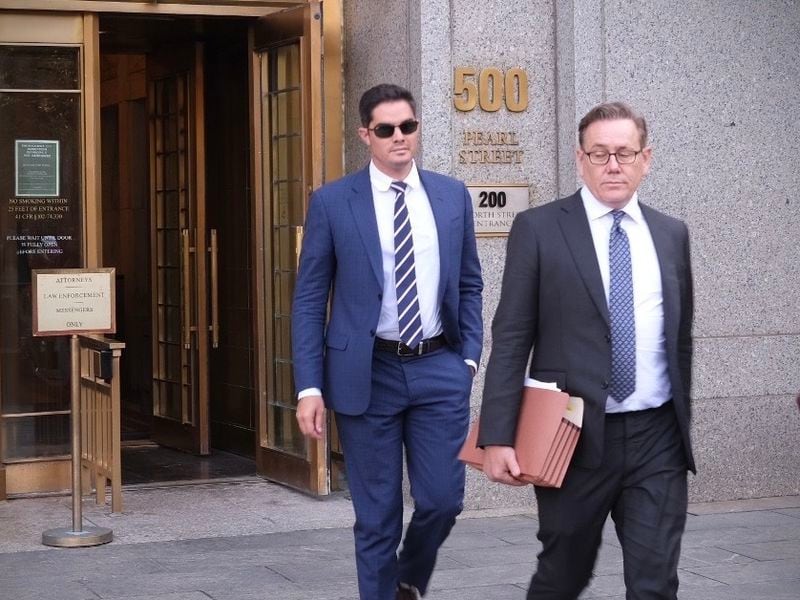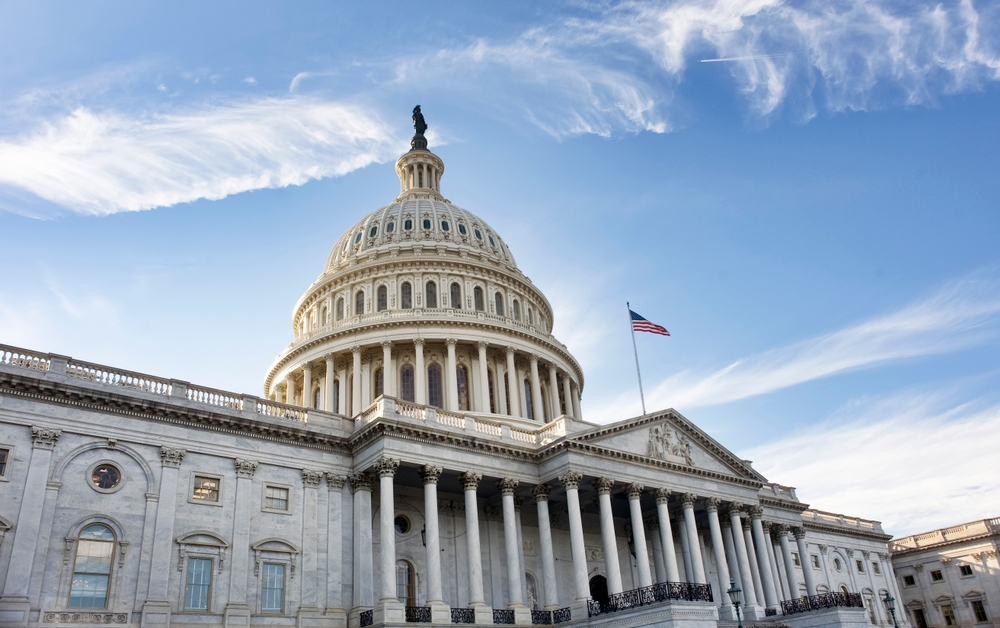Bitcoin Should Be Central to Regulation of Digital Assets
Featured SpeakerChristy Goldsmith Romero
CommissionerU.S. Commodity Futures Trading Commission

Explore the policy fallout from the 2022 market crash, the advance of CBDCs and more.
:format(jpg)/www.coindesk.com/resizer/UQVTnv15kfhvMn7arEkxT29IH-4=/arc-photo-coindesk/arc2-prod/public/QNIM6KEYOVH57GRD3MMB4LLUOM.jpeg)
John Rizzo, a former senior spokesperson at the U.S. Department of the Treasury, is senior vice president for public affairs at Clyde Group.
Featured SpeakerChristy Goldsmith Romero
CommissionerU.S. Commodity Futures Trading Commission

Explore the policy fallout from the 2022 market crash, the advance of CBDCs and more.
The chairman of the House of Representatives Financial Services Committee, Rep. Patrick McHenry (R-N.C.) recently outlined two critical priorities for the House Republican majority’s crypto work this year – market structure and stablecoins. While McHenry’s comments about stablecoins have received most of the attention, his committee’s market structure work has the potential to allow the U.S. to seize a key advantage over its global competitors in the future of the economy.
U.S. policymakers should leverage crypto’s oldest tool and the work of a mysterious figure who just turned 48 years old. Unfortunately, Satoshi Nakamoto’s essential contribution, Bitcoin, has somehow taken a back seat in two years of crypto news focused more on Sam Bankman-Fried’s foibles and Do Kwon’s whereabouts. Yet, despite all this drama, Bitcoin endures, and 15 years after Satoshi’s seminal white paper its role in society and the implications for U.S. policy are becoming more apparent.
John Rizzo is senior vice president for Public Affairs at Clyde Group where he provides strategic counsel and communications. He most recently served as the senior spokesperson at the U.S. Department of the Treasury covering digital assets, fintech, climate finance, financial stability, domestic finance and economic policy.
Bitcoin is not a panacea for all that ails the economy. Also, it’s not yet a reliable medium of exchange for everyday transactions or a genuine rival to the U.S. dollar. But it has proven itself as an alternate source of value – a kind of digital gold if you will – and a tool U.S. lawmakers can seize upon as they confront an increasingly volatile and polarized world.
As the Bitcoin Policy Institute noted in a November 2022 letter to the U.S. Treasury Department, Bitcoin is “credibly neutral, widely decentralized, uncontrolled by any leadership or founding team, and optimized for resisting censorship.” For U.S. policymakers increasingly focused on rivalries with China and Russia, Bitcoin offers a real opportunity to enhance the economic freedom of residents of countries who can see their financial agency disappear if they oppose the ruling power.
Moreover, if dissidents in foreign countries can access sources of value outside the regime’s control that oppresses them, then the political equation could shift. And all of a sudden democratic change in nondemocratic countries could be possible – certainly not assured, but distinctly more possible.
There is also a more benign foreign policy benefit to Bitcoin than rivalries between countries. U.S. residents often take for granted the stability of our nation’s currency. But citizens of many other countries don’t have that luxury, and millions have learned how one’s economic circumstance can change when a national currency goes belly up. So while Bitcoin is volatile too, residents of unstable countries could use it as a preferable hedge to domestic economic risks. Holding Bitcoin is undoubtedly easier for this hypothetical resident than opening a U.S. or European bank account to store dollars or euros. Is holding bitcoin (BTC) the perfect answer? Probably not. But it can serve as an economic insurance policy against instability in countries whose economies are fragile.
Here in the U.S., crypto market structure legislation that supports Bitcoin can also positively affect American priorities beyond foreign policy. For example, while the current unemployment rate is low, bitcoin mining operations can provide jobs, particularly in rural communities left behind by economic growth over recent decades.
Of course, many point, including the Biden administration, to bitcoin mining’s impact on the environment, but the exact degree is disputed. It’s also important to note the downside for the environment is not unique to bitcoin – economic activity tends to use energy, which drives emissions and worsens climate change. There is also evidence of bitcoin mining having a beneficial impact on electric grids. There’s no reason bitcoin mining can’t be reoriented towards renewable energy. Many are moving in that direction already.
So, as lawmakers consider the crypto market structure, how can they take advantage of bitcoin’s potential? First, they should write into law the emerging consensus that bitcoin is a commodity. Second, they should set up a regime of spot market regulation overseen by the Commodity Futures Trading Commission.
Third, they should ensure that bitcoin mining takes place in the U.S., where the environmental impacts can be more strictly managed than in a country with little regard for the environment. Finally, they should incentivize bitcoin mining, which uses renewable energy and pays workers family-sustaining wages.
As we approach two decades since Satoshi’s landmark white paper, we still know very little about this enigmatic author’s politics or identity (although that has not stopped some from guessing). But we understand that this person (or persons) created an innovation – a technology derivative of another technology, encryption. As we’ve seen repeatedly, technology can be used for good or bad. It can create jobs or destroy them. It can harm the environment or bolster efforts to protect it. The art of sound policymaking is weighing the good and bad, risks and rewards, and putting policies that promote the common good in place.
As Congress launches into making crypto policy, here’s hoping they take advantage of this unique Bitcoin opportunity. They can even draft the legislation on a Mac, if they like.
Learn more about Consensus 2023, CoinDesk’s longest-running and most influential event that brings together all sides of crypto, blockchain and Web3. Head to consensus.coindesk.com to register and buy your pass now.

DISCLOSURE
Please note that our
privacy policy,
terms of use,
cookies,
and
do not sell my personal information
has been updated
.
The leader in news and information on cryptocurrency, digital assets and the future of money, CoinDesk is a media outlet that strives for the highest journalistic standards and abides by a
strict set of editorial policies.
CoinDesk is an independent operating subsidiary of
Digital Currency Group,
which invests in
cryptocurrencies
and blockchain
startups.
As part of their compensation, certain CoinDesk employees, including editorial employees, may receive exposure to DCG equity in the form of
stock appreciation rights,
which vest over a multi-year period. CoinDesk journalists are not allowed to purchase stock outright in DCG
.
:format(jpg)/www.coindesk.com/resizer/UQVTnv15kfhvMn7arEkxT29IH-4=/arc-photo-coindesk/arc2-prod/public/QNIM6KEYOVH57GRD3MMB4LLUOM.jpeg)
John Rizzo, a former senior spokesperson at the U.S. Department of the Treasury, is senior vice president for public affairs at Clyde Group.









